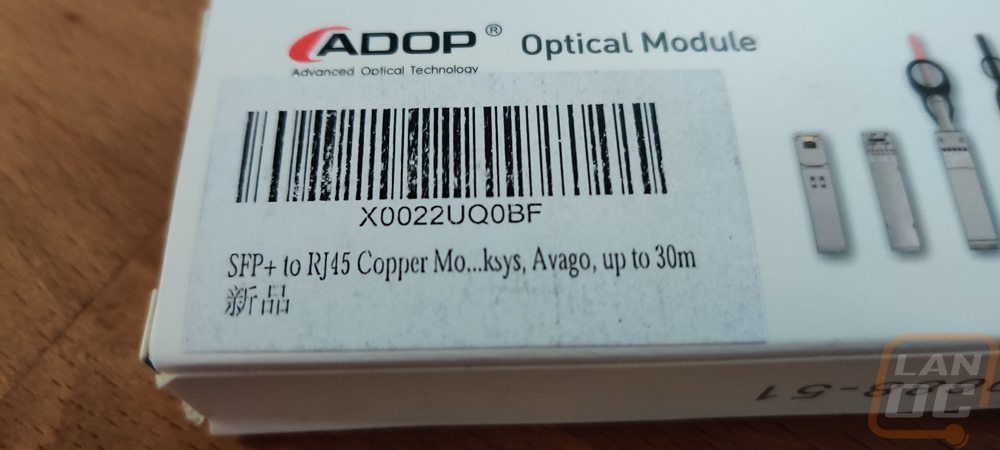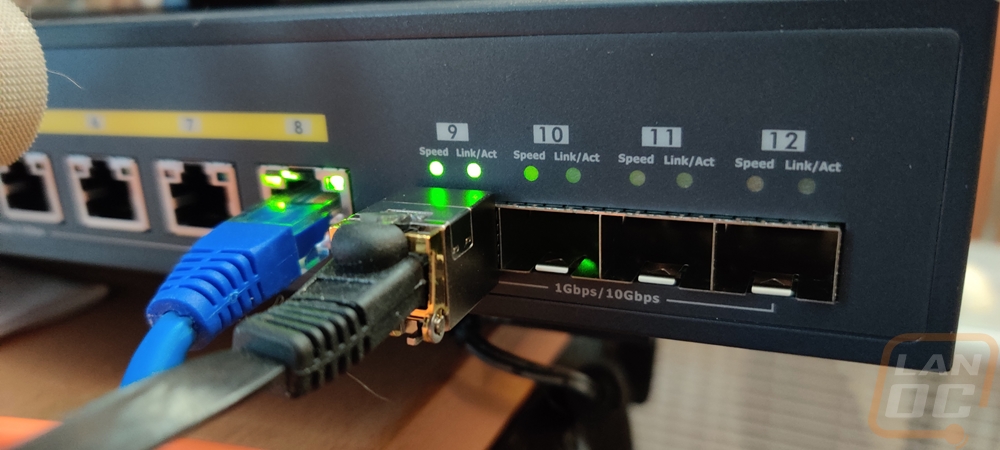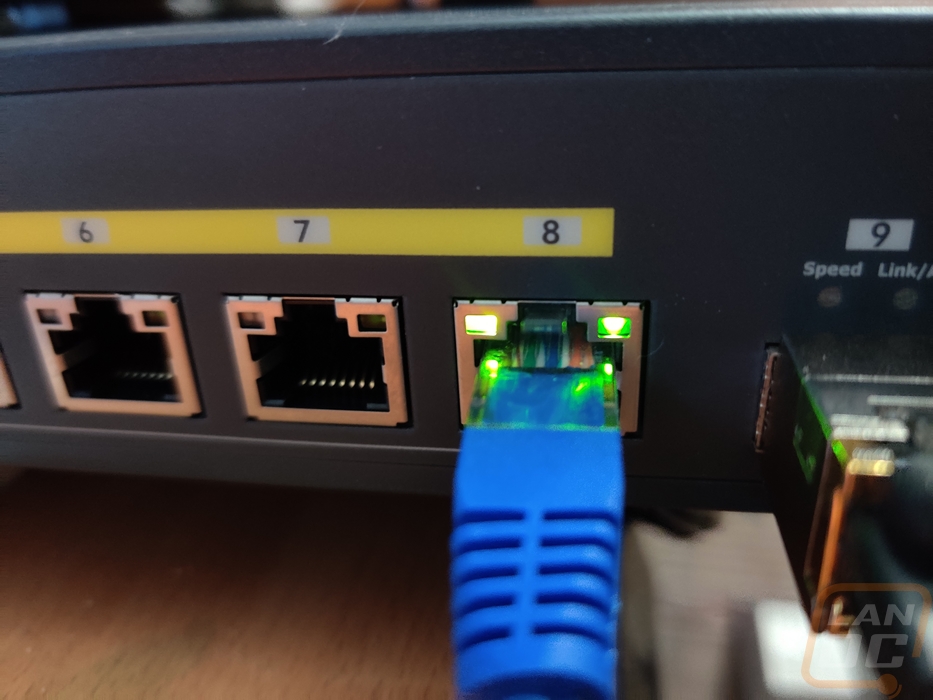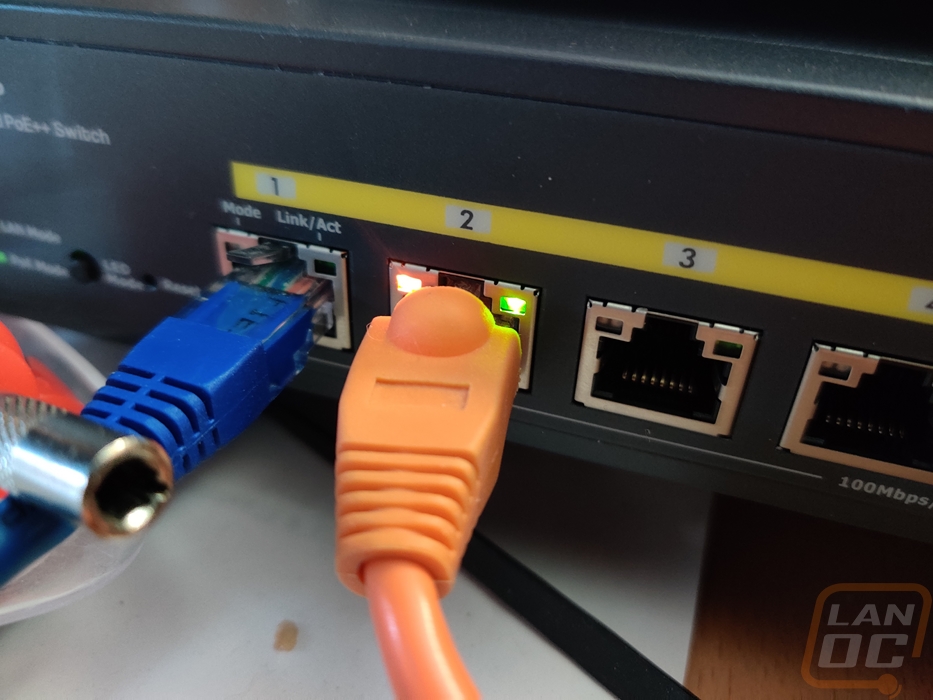Performance
Performance testing for the ECS2512FP isn’t especially complicated. But before jumping into it there were a few things I wanted to dig into on the specifications. Namely the switching capacity, something that isn’t easily tested without a lot of VMs and network cards. But is important to the overall performance of the switch. In other words, it doesn’t matter how well the switch performs with a few devices hooked up if it can get overloaded when you put it to the test. The ECS2512FP has a switching capacity of 120 Gbps. Doing a little napkin math we have 8 2.5 Gbps ports which are full-duplex so that is 8x2.5=20 times 2 for 40Gbps. Then we have four SFP+ ports that are capable of 10 Gbps as well. Those need 40 or 80 with full duplex which totals up to 120 so the ECS2512FP has the switching capacity to handle all of the ports including the SFP+ ports all full-duplex speeds.
With that in mind, I wanted to test out the SFP+ ports and I ended up a little worried here. I wanted to get transceivers for 10G over copper RJ45, not the fiber transceivers. When shopping around all of the options had different models depending on the brand of switch and none included EnGenius on that list, so I had to wing it and guess. So of course I bought the cheapest possible option on Amazon which was THIS SFP+ to RJ45 Copper Module from ADOP for Cisco, Ubiquiti, Netgear, Supermicro, Qnap, Broadcom, Linksys, and Avago for $39.99 shipped. Thankfully when it came in, it worked right out of the box. Which is good because the other models were twice the price.


The SFP+ module slides in easily and as you can see below it lights up with a dual-LED layout just like the normal ports to show traffic and the connection speed.



Back to the actual testing, for this, I went with Passmark’s Performance Test which has a built-in network test. You set up the software on two devices, in this case, two different PCs plugged into the ECS2512FP. For testing, both PCs have 10G network cards. One runs as a server and the other transfers files to and from the server and it records an average speed. I ran this test multiple times and did it when hooked up to the standard 2.5G ports as well as using two of the SFP+ modules to go 10G to 10G. As you can see below both were just a hair under which is what you would expect on an average, not peak test.
|
Passmark Performance Test 9 – Network Test |
Average Speed |
|
2.5G Port performance |
2372 Mbits/Sec |
|
SFP+ port with 10G RJ45 Copper transceiver |
9490 Mbits/Sec |
I also put the POE to work with our ECW230 access point, I should note that the POE is only going to work on the 8 traditional ports, not the extra SFP+ ports. The ECW230 really only pulled 8.9 watts over POE. The ECS2512FP supports up to 240 watts used which is 30 watts per port leaving lots of extra room there. The IEEE 802.3a standard or PoE+ which is supported here limits devices to 25.5 watts so the 240 watts in total is more than enough for this switch.


